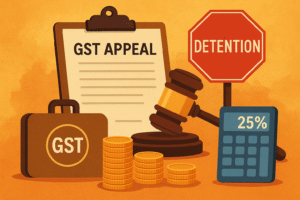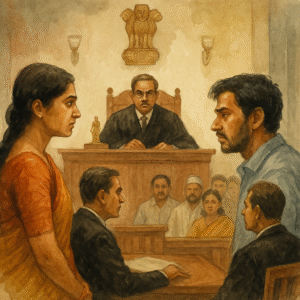Simplified Explanation of the Judgment
In a significant judgment delivered on 26 February 2021, the Patna High Court clarified the law governing organ donation and kidney transplantation when the donor and recipient are not near relatives under the Transplantation of Human Organs and Tissues Act, 1994 (THO&T Act).
The writ petition was filed jointly by two individuals — one a patient suffering from chronic kidney failure (the “proposed recipient”) and the other a well-wisher willing to donate a kidney voluntarily (the “proposed donor”). Both approached the Court after a private hospital in Patna refused to forward their case to the State Authorization Committee for permission to proceed with the transplant.
The refusal was based on the fact that the proposed donor was not a near relative (as defined in Section 2(i) of the THO&T Act). The hospital suspected that the donation might not be entirely altruistic and might involve a commercial element, which is strictly prohibited under the Act.
However, the donor consistently maintained that his willingness stemmed purely from affection and attachment toward the recipient, who was suffering from end-stage renal failure and dependent on regular dialysis.
The petitioners argued that the hospital was duty-bound to forward their application to the Authorization Committee instead of unilaterally refusing it. They sought a writ of mandamus directing the authorities to initiate the pre-transplant process and to grant necessary approvals.
Background and Legal Context
The Transplantation of Human Organs and Tissues Act, 1994, was enacted to (a) regulate the removal, storage, and transplantation of human organs for therapeutic purposes, and (b) prevent commercial dealings in human organs.
While the Act allows near relatives — such as spouses, parents, siblings, or children — to donate organs without prior approval, it imposes strict scrutiny on non-relative donations, which require the authorization of a statutory committee to ensure there is no monetary transaction.
Under Section 9(3) of the Act, when a donor authorizes removal of an organ for transplantation into the body of another person who is not a near relative, the transplant can proceed only with the prior approval of the Authorization Committee.
The Authorization Committee is a statutory body responsible for verifying:
- that the donation is voluntary,
- that there is no commercial transaction, and
- that the donor’s consent arises from affection, attachment, or special reasons rather than coercion or exploitation.
The Dispute Before the High Court
In this case, the private hospital (Paras HMRI Hospital, Patna) initially conducted compatibility tests and found the donor and recipient to be a suitable biological match. However, it refused to proceed further, claiming the donation appeared “suspicious” and possibly contravened Clause 19(a) of the Act.
The hospital noted that the donor worked as a temple priest at a temple established with the help of the recipient, a locally influential person. On that basis, the hospital suspected that the donor’s consent might not be purely altruistic.
This refusal created a deadlock:
- The hospital insisted that it could not proceed without the Authorization Committee’s approval.
- The Authorization Committee, on the other hand, said no approval was required merely for “matching tests,” resulting in procedural confusion.
The High Court observed that such technical and mechanical approaches defeated the very humanitarian objective of the law — to facilitate legitimate, voluntary donations while preventing commercial exploitation.
Court’s Legal Analysis
Hon’ble Justice Chakradhari Sharan Singh, delivering the oral judgment, undertook an extensive examination of the statutory scheme of the THO&T Act and the 2014 Rules.
The Court clarified the following key legal points:
- Purpose of the THO&T Act:
The Act serves a dual purpose — (a) to regulate legitimate therapeutic organ transplants, and (b) to prevent commercialization and trafficking. - Applicability in Bihar:
The Court confirmed that the Act is fully applicable in Bihar through resolutions passed by both Houses of the State Legislature under Article 252(1) of the Constitution. - Authority of the Donor:
Every individual has the right to authorize removal of an organ from their body — either before or after death — for therapeutic use, subject to the law’s conditions. - Role of the Authorization Committee:
The Committee must evaluate all non-relative donations to ensure the donor’s act is genuine and voluntary. It must look into the relationship between donor and recipient, their financial status, and any potential for exploitation or coercion. - Duty of Hospitals:
Hospitals cannot unilaterally decide whether a donation is suspicious. Their role is to forward all applications to the Authorization Committee for scrutiny. Refusing to even process the application is a dereliction of duty. - Court’s Direction:
The High Court directed the hospital and the concerned authorities to immediately process the petitioners’ application and forward it to the Authorization Committee for consideration in accordance with the law.
The judgment emphasized that humanitarian and constitutional values must guide the interpretation of the THO&T Act. Where a donor acts out of affection or moral obligation, the State machinery should not obstruct the process unless there is clear evidence of illegality.
Significance or Implication of the Judgment
This decision holds wide significance for both patients and healthcare institutions across Bihar and India.
- For Patients and Donors:
It assures patients that non-relative organ donations are legally permissible when voluntary and genuine. It prevents hospitals from arbitrarily denying life-saving procedures based on suspicion or over-caution. - For Hospitals:
The judgment clarifies that private hospitals cannot act as self-appointed regulators. Their duty is procedural — to ensure medical documentation and forward applications — not to determine the legality of donations. - For the Government:
The ruling reinforces the importance of an efficient, compassionate Authorization Committee process. Bureaucratic delays or indecision in life-saving transplants violate the spirit of Article 21 of the Constitution — the right to life.
The Court’s humanitarian tone also underlines that laws on organ donation must balance ethical safeguards with empathy for patients in need.
Legal Issue(s) Decided and the Court’s Decision
- Whether a private hospital can refuse to forward a non-relative donor’s case to the Authorization Committee:
➤ Held: No. Hospitals must process such cases and forward them for statutory approval. - Whether a non-relative donor’s voluntary offer can be accepted under the THO&T Act:
➤ Held: Yes, if the donation is voluntary, altruistic, and without monetary consideration, as verified by the Authorization Committee. - Whether the THO&T Act restricts a person’s right to donate his organ out of affection:
➤ Held: No. The Act does not bar such donations but regulates them to prevent commercial exploitation. - Whether the Authorization Committee has the final authority to approve such cases:
➤ Held: Yes. The Committee’s role is pivotal, and its decision must be reasoned and written in the prescribed format.
Judgments Relied Upon or Cited by the Court
While this judgment primarily interprets statutory provisions, it draws upon the Statement of Objects and Reasons of the THO&T Act and its 2011 Amendment to reinforce the principle of voluntary and non-commercial donation.
Case Title
Proposed Donor and Recipient v. State of Bihar & Ors. (Anonymized for publication)
Case Number
Civil Writ Jurisdiction Case No. 14947 of 2019
Citation(s)
2021(2) PLJR 523
Coram and Names of Judges
Hon’ble Mr. Justice Chakradhari Sharan Singh
Names of Advocates and who they appeared for
- For Petitioners: Mr. Krishna Kant Singh and Mr. Anil Kumar Sinha, Advocates
- For the State: Mr. S.D. Yadav, A.A.G.-9 and Smt. Shama Sinha
- For Respondents 6 to 8 (Private Hospital and Doctors): Mr. Sandeep Kumar and Mr. Alok Kumar @ Alok Kumar Shahi, Advocates
Link to Judgment
MTUjMTQ5NDcjMjAxOSMxI04=-mwtSaRrAc34=
If you found this explanation helpful and wish to stay informed about how legal developments may affect your rights in Bihar, you may consider following Samvida Law Associates for more updates.








